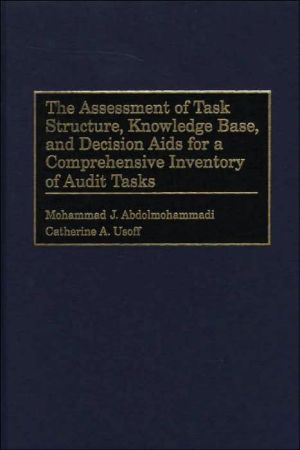

 |

|

The average rating for The Assessment of Task Structure, Knowledge Base, and Decision Aids for a Comprehensive Inventory of Audit Tasks based on 2 reviews is 3 stars.
Review # 1 was written on 2020-12-07 00:00:00 Gregory Luders Gregory LudersThe audit might form a kind of legitimizing ritual for the technicalized, 'anti-political' aspects of government. Power's insights about the ways that the audit reworks existing professional practices to make them amenable to audit oversight is useful. The tension between 'decoupling' and 'colonizing' aspects of the audit is an interesting starting point for thinking about how technical processes are legitimized. Also useful is the concept of orders of systems of control - audit being a 'second order' system for the control of regulatory systems. |
Review # 2 was written on 2011-09-29 00:00:00 Peter Klapka Peter KlapkaHow can auditing be such a robust policy tool when it so often fails. Are we becoming an audit society'the pathologically of excessive checking? This book attempts to provide an answer. It makes many interesting points, such as: auditing is an important constraint on the development of any performance measures, especially non-financial ones, or ones that cannot be audited; audits produce comfort and reassurance rather than critique; with respect to financial auditing, more accurate to speak of an "audit implosion" rather than an "audit explosion"; in the end, checking itself requires trust; have auditors earned that trust? While most people think that auditing is to detect fraud, that's not what financial auditors do. This is the "expectations gap," and the profession has done a lousy job with messaging and marketing the real function of an audit. This obfuscation is a feature, not a bug, and it's why I believe the CPA profession doesn't deserve a monopoly in this service. Monopolies don't innovate, and nowhere is that more evident than in auditing. Open it up to competition and all sorts of new offerings would enter the market: financial statement insurance, other providers of audit, etc. Also, the author doesn't really address how an audit firm can be independent if they are paid by the company they are auditing? This is a problem the profession simply doesn't want to address, instead crafting all sorts of picayune rules that make it look like they are concerned with independence in fact and appearance. I think the stock market exchanges should hire and pay the auditing firm, as they are in the best position to capitalize on the audit. But the author doesn't really address this issue at all. The book is very wonkish, somewhat turgid, and not a light read. It's also outdated, and is mostly UK examples. I still thought there were some good points, I just wished he expanded the analysis of what innovation could do to reform auditing. Blockchain is an obvious partial answer. |
CAN'T FIND WHAT YOU'RE LOOKING FOR? CLICK HERE!!!